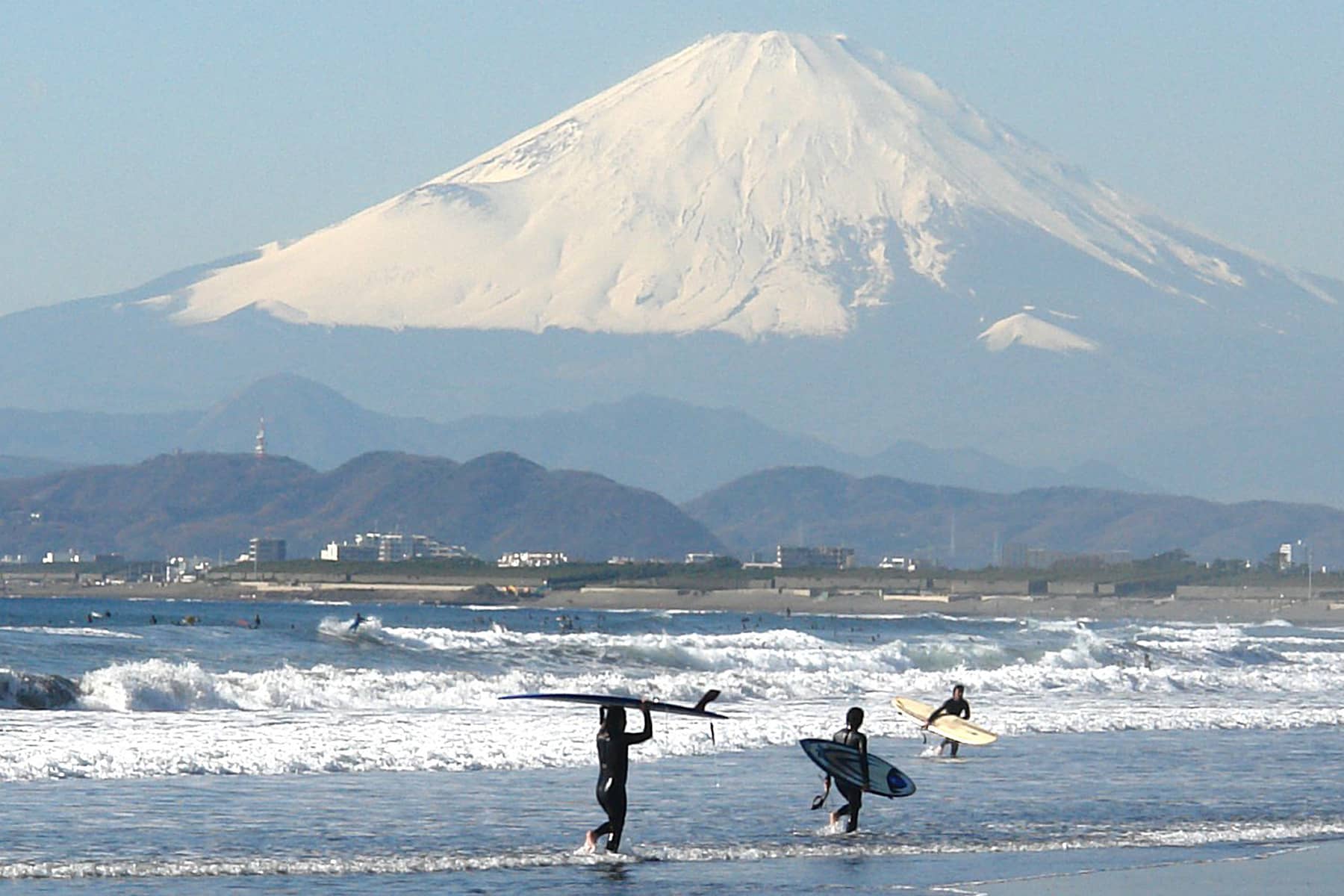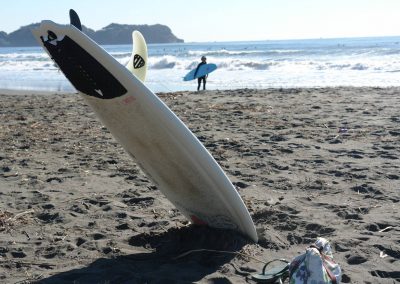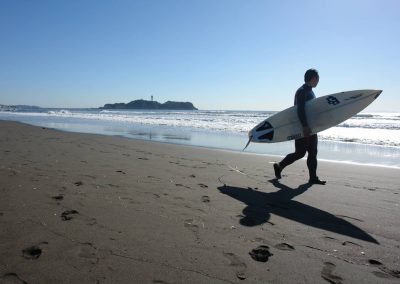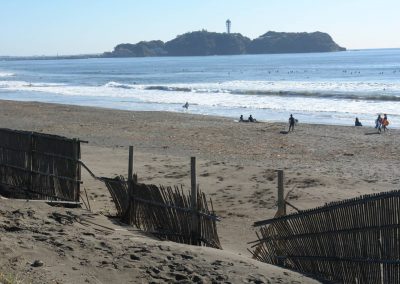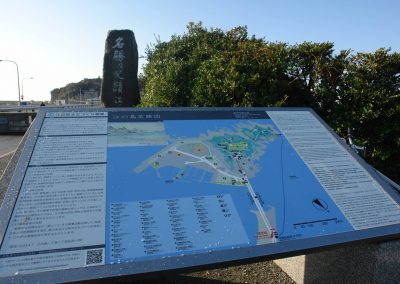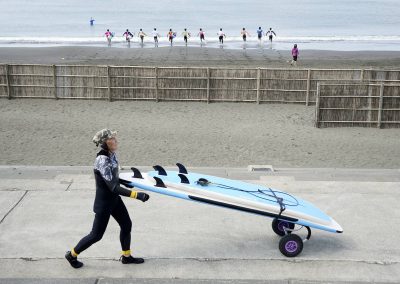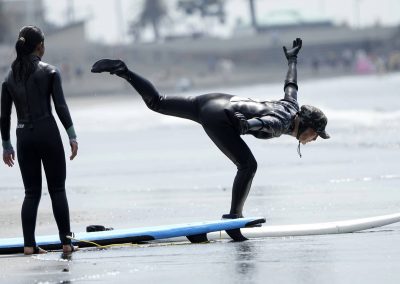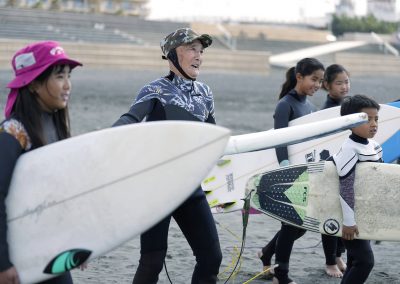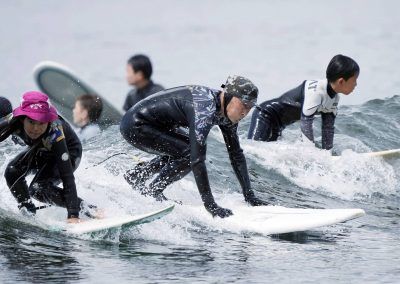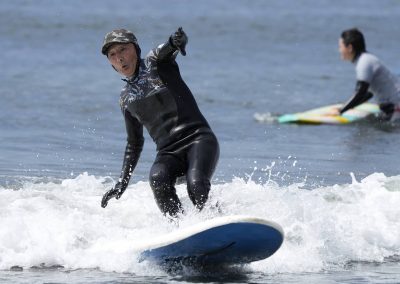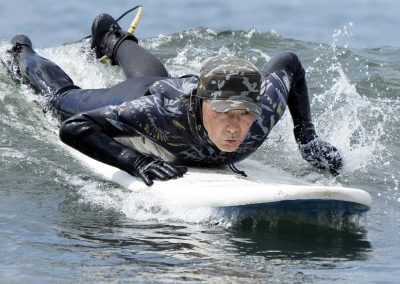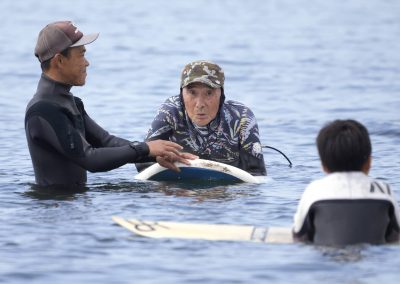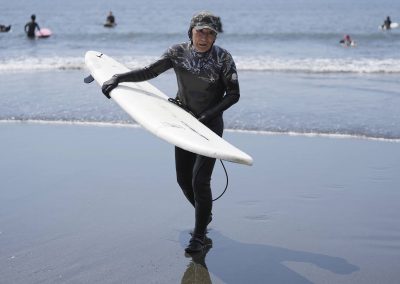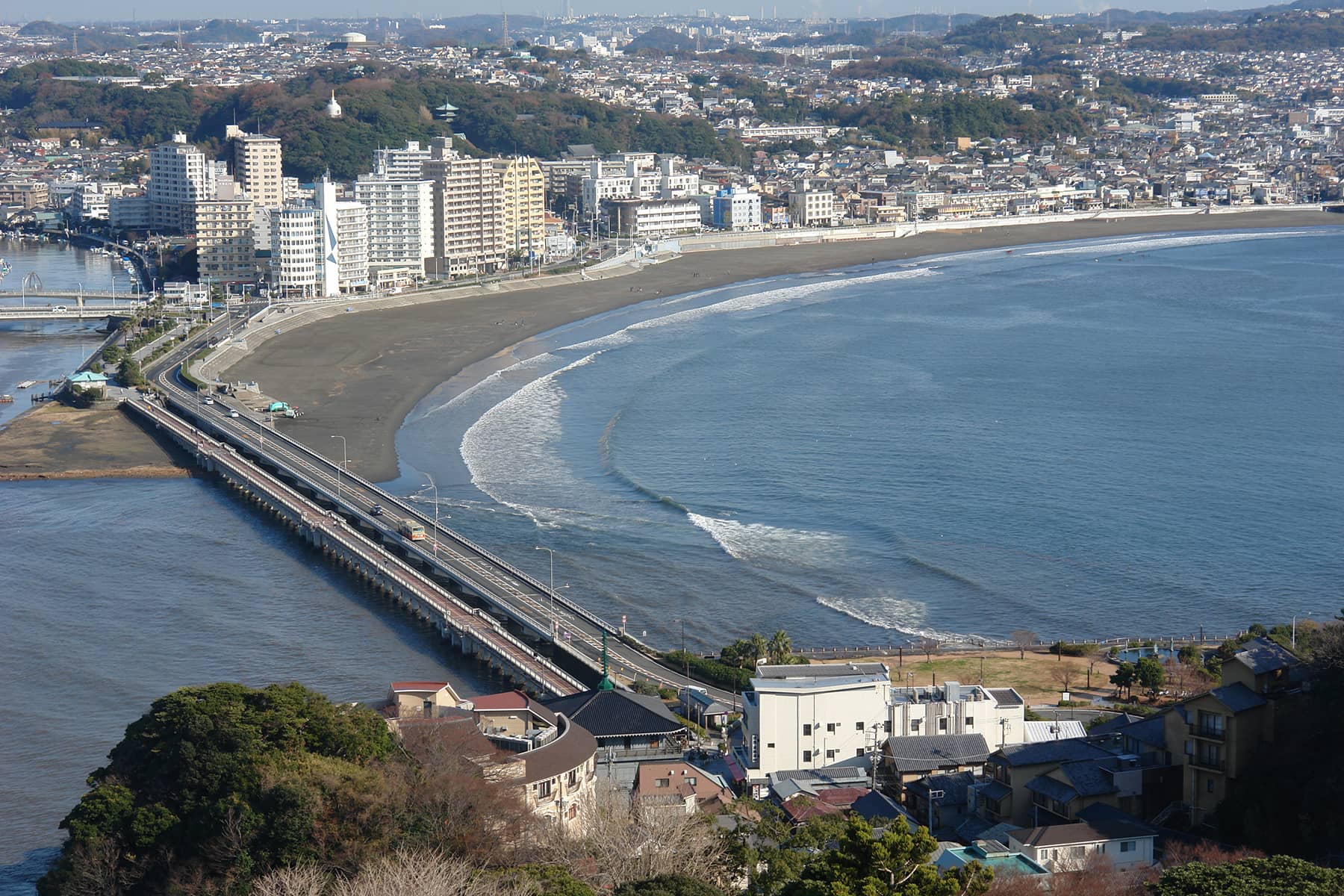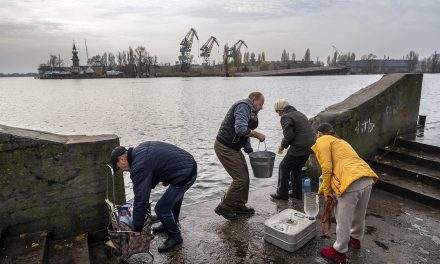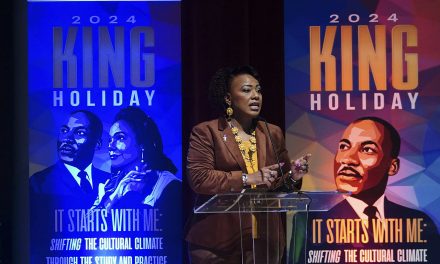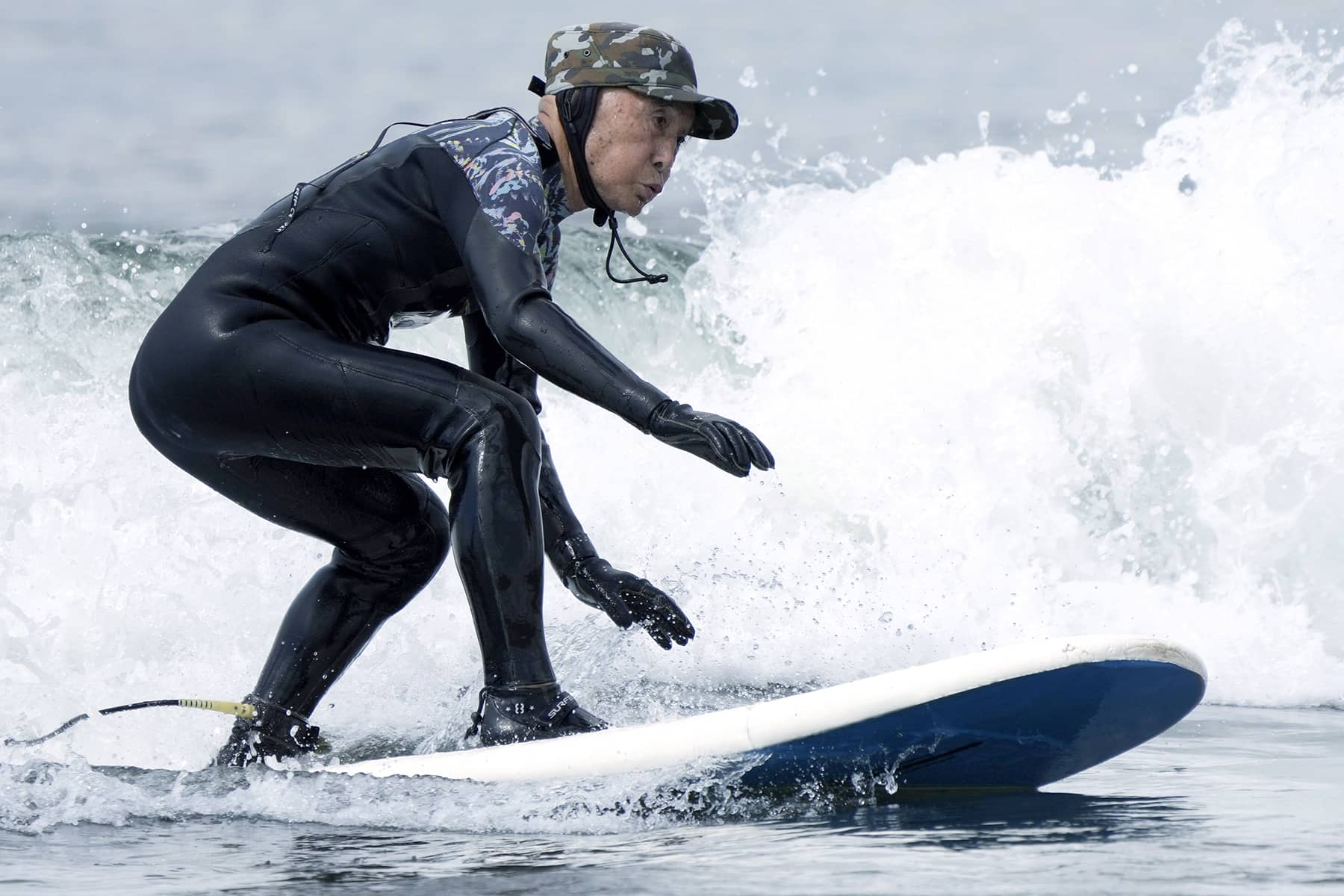
Fujisawa, a coastal city located in the Kanagawa prefecture of Japan, has long been known for its picturesque beaches. The city attracts surfers from all around the world, who come to catch the waves and experience the unique and thriving surf culture that has developed there.
A busy company owner for the early part of his life, Seiichi Sano began anew at 80 by climbing Mt. Fuji. Apparently not challenged enough by Japan’s highest peak, he almost immediately took up surfing.
Sano turns 90 later this year, and after being recognized by Guinness World Records as the oldest male to surf, he is ready for other tests.
“Maybe I’ll try bouldering,” he said, suggesting he might do it first in a gym. “Outside it might be a bit dangerous.”
He ruled out bungee-jumping. “Too scary,” he said.
Or maybe he will just stick with what he knows.
“I think it would be interesting to try to surf until I’m 100,” Sano said. “I think I take better care of myself when I have goals like this. Even now, I take better care of myself than I did before.”
Sano lives about 20 minutes from Yokohama and gets out most weekends on the black-sand beach near Enoshima, the small island that hosted sailing for the recent Tokyo Olympics, and was the harbor for the 1964 Games.
He said he was inspired by an employee at his local bank, who was always tan and did not look like a typical banker. His secret, he said, was surfing. So Sano followed up and found a teacher.
“I don’t consider myself an old man,” Sano said in his wet suit, board standing alongside. “I have never thought of myself as an old person. I always feel that I can still move forward. I can still do it. I can still enjoy it.”
Surfing in Fujisawa dates back to the 1960s when the first surfers discovered the waves on the city’s beaches. Since then, the city has become a hub for surfers from Japan and around the world. The city’s beaches, such as Enoshima and Shonan, offer world-class waves that attract surfers of all skill levels.
The city’s surf culture is unique. Surfing is not just a hobby but a way of life for many of the local residents. Surfers in Fujisawa see the ocean as a spiritual place, and they often pay homage to the ocean before and after surfing sessions.
Enoshima is an area of small waves, which suits Sano. He joined hundreds of other surfers, waiting for the larger waves to come. All the surfers were younger, of course. Several were elementary school or junior high age who also work with Sano’s surf instructor, 46-year-old Kazuto Shimizu.
They could not wait to brag about their, so to speak, “great grandfather.”
“I think age doesn’t matter in surfing,” 12-year-old Iroha Shimabukuro said.
Added her twin sister, Fuka: “He’s more like a family member regardless of age.”
“I think he’s amazing,” said their younger brother, Shua.
Rokka Saito, the other young surfer in the pack of four, summed it up.
“I respect him,” she said.
Sano paddles out and waits for a wave to approach. He catches it and stands, tries to do a few tricks on the board, and often tumbles over into the shallow water at the beach’s edge.
“I can only say that I just enjoy myself and do what I want without stressing out,” he said. “So if you try to be too good at it, or think that you have to do it this way or that way, I think you lose the fun.
“I enjoy being swept up in the wave,” he added. “I am not a good surfer. So I call myself a ‘small-wave surfer’ — out of respect for those who surf well.”
Sano still runs a business that supplies timber to construction companies, and still works 9-to-5 at the job. The surfing is a stress reliever, apparent as he takes a break far from shore and floats on his back with his legs draped over his blue and white board.
“To be honest, I was surprised by his age,” said Shimizu, his instructor. “I was most worried that he would get injured. I did not know how fit he was, physically. So when I heard he was 80, I thought it would be a bit tough to think about whether my own grandfather could surf. I was surprised he was able to do it as well as younger people.”
Sano joked about surfing in the delayed Tokyo Games, held just under two years ago.
“I was hoping to participate in the Tokyo Olympics, not as a competitor but as an old-age demonstrator,” he said.
Sano goes through a serious stretching routine before going out; legs splayed 120 degrees, and hands touching his toes. When he stands, he’s straight as his board — though at 5-feet-4 (1.65 meters), far shorter.
“People often say that surfing is life, itself,” he said. “If I describe it in one word, I think it really applies to me right now.”
Editor’s Note: Photojournalist Lee Matz lived along the coast in Fujisawa prior to the 2011 Tōhoku earthquake and tsunami, and could see surfers riding waves regardless of the season.

